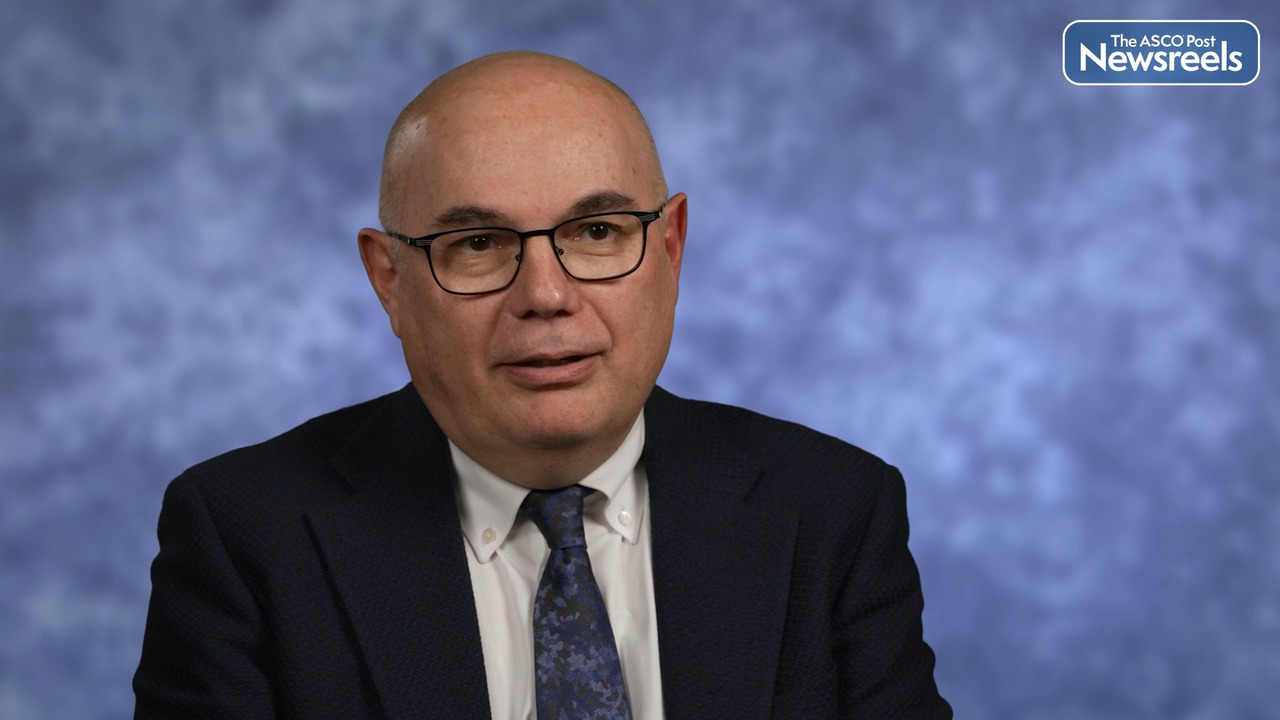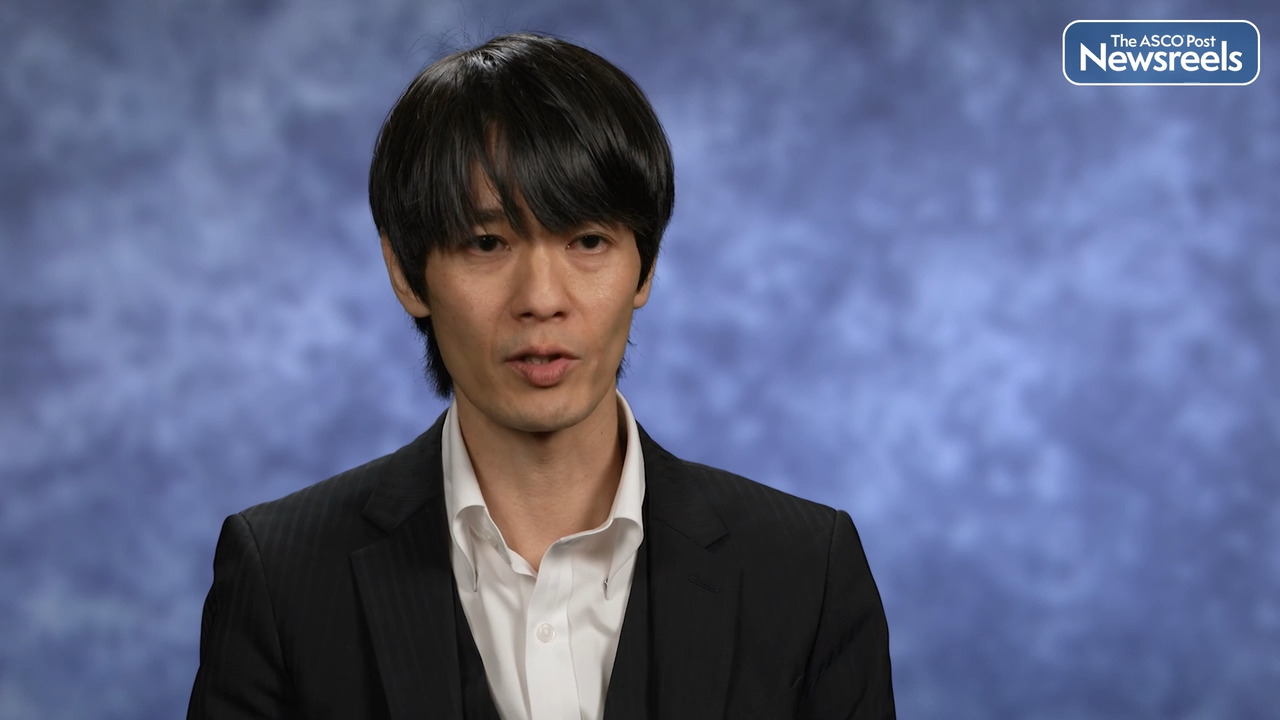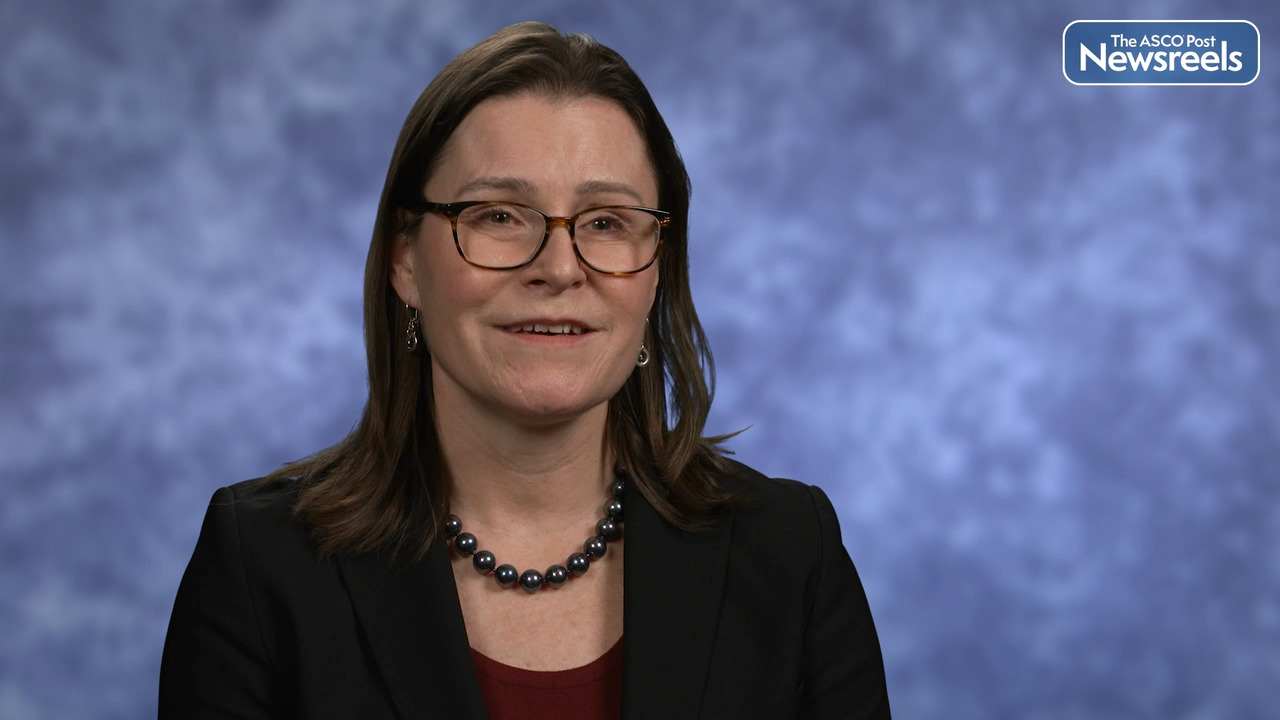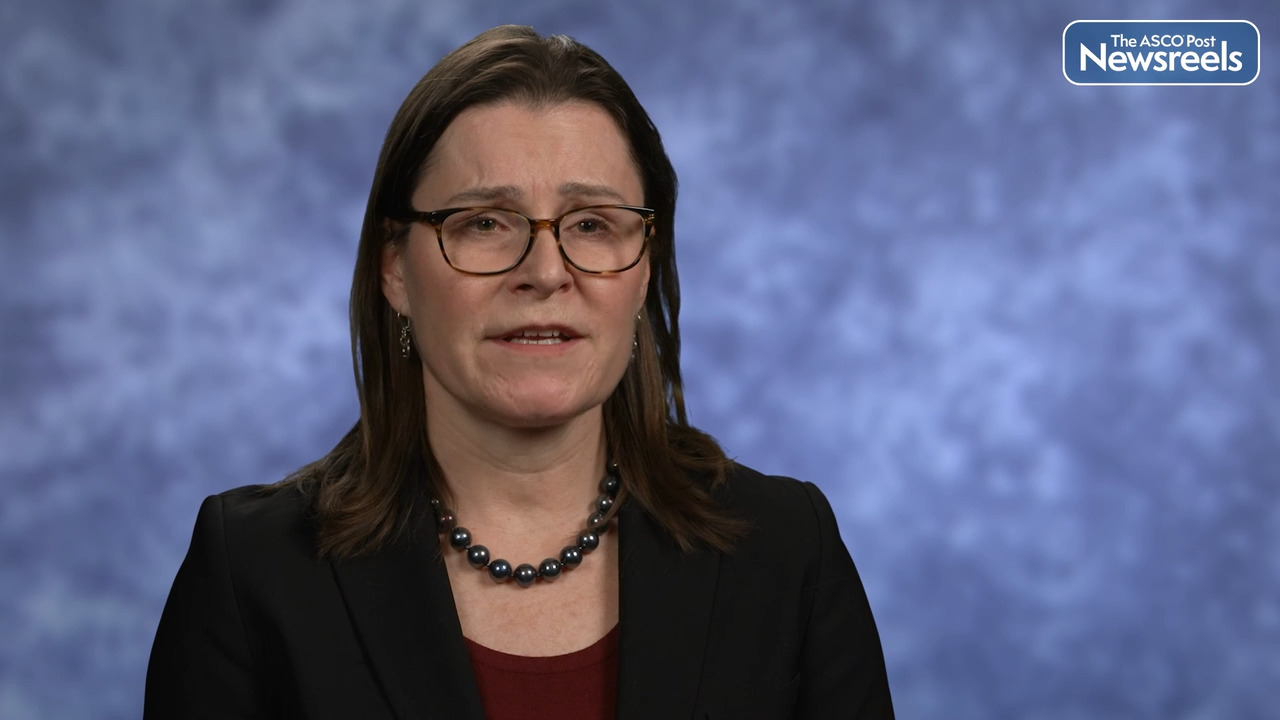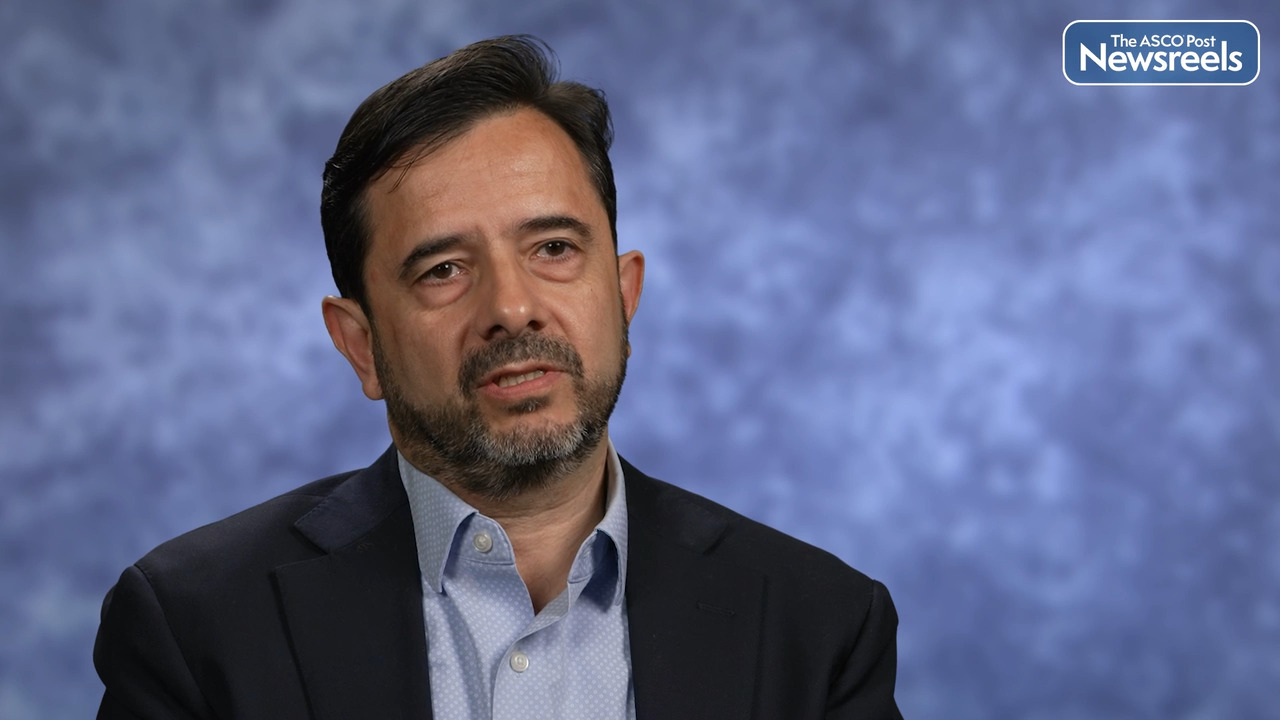Transcript
Disclaimer: This video transcript has not been proofread or edited and may contain errors.
The trial fundamental is trying to ask the question of what's the optimal frontline therapy regimen for patients with metastatic pancreatic cancer? Historically, there have been two main regimens: FOLFIRINOX and Gem/nab-paclitaxel, but never have been compared head to head.
In this trial we compared NALIRIFOX, which is adding liposomal irinotecan in place of regular irinotecan, along with 5-FU/leucovorin and oxaliplatin. We had done a phase one dose escalation expansion study to come up with the optimal dosing for that regimen and then launched the phase three trial comparing that regimen, it's called NALIRIFOX, against Gem/nab-paclitaxel in newly diagnosed patients. The purpose of the study is to answer that question: which group of patients lived longer and how can we inform the pancreatic cancer community as to the optimal dosing and optimal regimen for frontline patients?
The results of the study, which today we presented for the first time, showed that there was an improvement in overall survival as the primary endpoint of the study in the group of patients who received NALIRIFOX over Gem/nab-paclitaxel. This was statistically significant with a hazard ratio of 0.83 and a P value of 0.04 that showed that we improved the median overall survival about two months from 9.2 months with Gem/nab-paclitaxel and 11.1 months to NALIRIFOX. We also met a key secondary endpoint of the study, which was progression-free survival, which we improved from 5.6 months with the control arm Gem/nab-pac to 7.4 months with NALIRIFOX, and that was also quite statistically significant.
When we look at the regimens, we look at a number of different things, obviously toxicity being one of them, because this is only appropriate for patients with an ECOG zero or one performance status, and those are the only patients enrolled in the study. So we really are looking at two different toxicity profiles of these drugs. With Gem/nab-paclitaxel, we saw significantly more cytopenias including neutropenia, anemia, and thrombocytopenia, and with NALIRIFOX, we saw more GI toxicity, some more diarrhea and nausea and vomiting, than with the Gem/nab-pac arm.
Interestingly, peripheral neuropathy, which is one of the things we're very sensitive about with FOLFIRINOX generally speaking, was less on this study than previously reported with FOLFIRINOX and less even than Gem/nab-paclitaxel, and it's probably because we use lower doses of Oxaliplatin than historically have been used for pancreatic cancer, about 15 to 20% lower. So that cumulative dose is likely the explanation for the less neuropathy seen. All in all being said though, the primary purpose of the study was to see which regimen was better, and to that effect, I think we answered this question for the pancreatic cancer community that Gem/nab-paclitaxel was inferior from a efficacy standpoint to this NALIRIFOX regimen.
Now moving forward, what does this mean? I think that number one, we'll see if this NALIRIFOX regimen gets FDA approval. Independent of that, I think what it fundamentally shows is that perhaps Gem/nab-paclitaxel for ECOG zero or one should now be utilized not in the frontline setting anymore. Perhaps we should be utilizing this as a second line regimen, and the reason for that is that if you have a survival advantage, you want to give patients the best chance in this disease from the get-go. So I think when you are able to demonstrate a survival advantage, which happens very rarely in pancreatic cancer ... The last time we demonstrated any overall survival advantage in pancreatic cancer was 2010. It's not a common occurrence, so when we do, we shouldn't ignore those data, in my opinion, and we should probably relegate Gem/nab-pac to a second line therapy moving forward.
That being said, nobody's particularly satisfied with the state of affairs as we are in this disease. Nobody's satisfied having a median overall survival of under a year in this disease, so we have to move forward and the way we move forward, hopefully, is by thinking about better effective combination chemotherapy regimens, perhaps NALIRIFOX, perhaps FOLFIRINOX, and combining those with newer agents. We shouldn't just be combining newer agents with Gem/nab-paclitaxel moving forward, in my opinion. We should look at those combination strategies and see if we can do better than we are doing today.
The second thing that we're going to do, and this is very important, is looking at the tissue and blood that's been collected on these patients, which has been a reasonable size for a global study of this size. We were able to collect a decent number of specimens. We have to go through and see what the quality is and see if we're able to do the kind of testing that we need. Independent of that, we collected about half the patients' plasma for the purposes of doing ctDNA, germline analyses to answer some other critical end questions for the field. So hopefully not just can we show that we improved survival compared to one of the standards of care, but hopefully we can also learn from this moving forward to explore which patient populations may have done exceptionally better.
